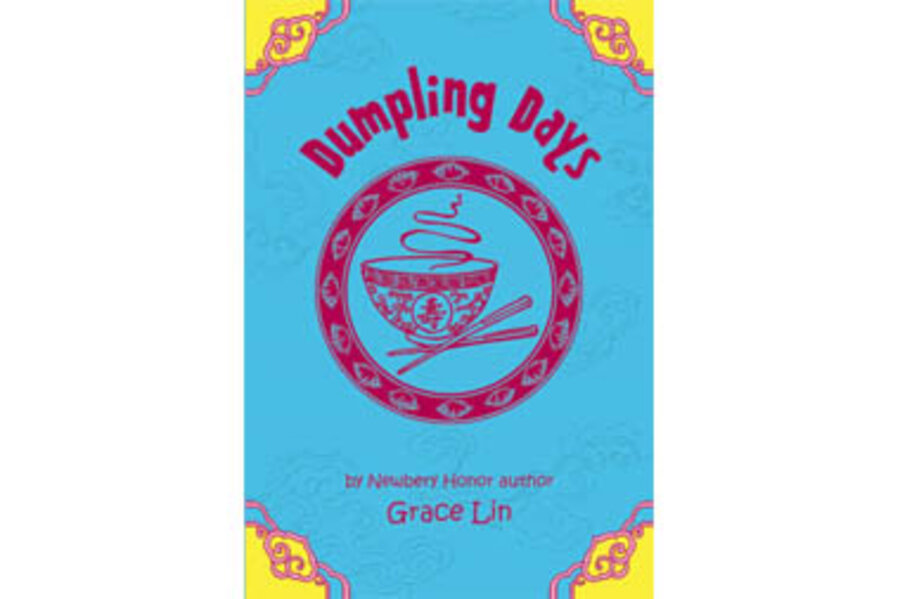Can it be your homeland if you've never been there before?
That's the question Pacy ponders as she and her sisters, teenage Lissy and seven-year-old Ki-Ki, squirm uncomfortably in matching hot-pink denim dresses on her first flight to Taiwan in Dumpling Days. Her grandmother is turning 60, and the Lins are going to spend 28 days in Taiwan.
“Being on the airplane made me feel as if I were stuck in a plastic bottle,” says Pacy, who doesn't speak Chinese and can't hold chopsticks “the right way.” She was accused of being a “Twinkie” – “yellow on the outside, but white on the inside” – at a Taiwanese-American convention and is afraid people in Taiwan are going to feel the same way.
Initially, Pacy's fears seem realized: People can't understand why she doesn't speak Chinese and look right through her. Even her art class, something she was counting on enjoying, is no fun. Pacy always has been good at art, but drawing bamboo in ink on rice paper is much more difficult than she expects.
But there's one thing about Taiwan she loves from the first day: the food. It's best to read “Dumpling Days” with a snack handy, since Lin's descriptions will leave readers craving hand-pulled noodles, peach buns, mochi, pineapple cakes, and Pacy's favorite dumplings. (The chicken feet she tries by accident, stinky tofu, and wasabi aren't quite as high on her list of culinary delights.)
The Lins are in Taiwan for Ghost Month, when people honor their ancestors by burning paper money, clothes, shoes, computers, and even cars so the ghosts can be comfortable in the next world. Unable to talk to anyone besides her family, Pacy starts to feel like a ghost herself. “Here, everyone had conversations that flew through me, like I was steam from freshly cooked rice. Sometimes I felt as if no one even saw me, and that made me hollow and empty.”
The family's sightseeing trips and classes are interspersed with stories and folk tales told by relatives delighted to show the girls the real Taiwan. And, as Pacy settles in, she starts finding more to enjoy than the food.
Lin's last novel, 2009's “Where the Mountain Meets the Moon,” combined “The Wizard of Oz” and Chinese folk tales to magical effect.
“Dumpling Days,” a continuation of her “Year of the Dog” and “Year of the Rat,” doesn't quite rise to the heights of that Newbery Honor book, but is charming, nonetheless. Like both of those books, it is based on the author's memories of growing up and features plenty of her whimsical ink drawings.
And this installment amply illustrates Pacy's father's point: “Traveling is always important – it opens your mind. You take something with you, you leave something behind, and you are forever changed. That is a good trip."







